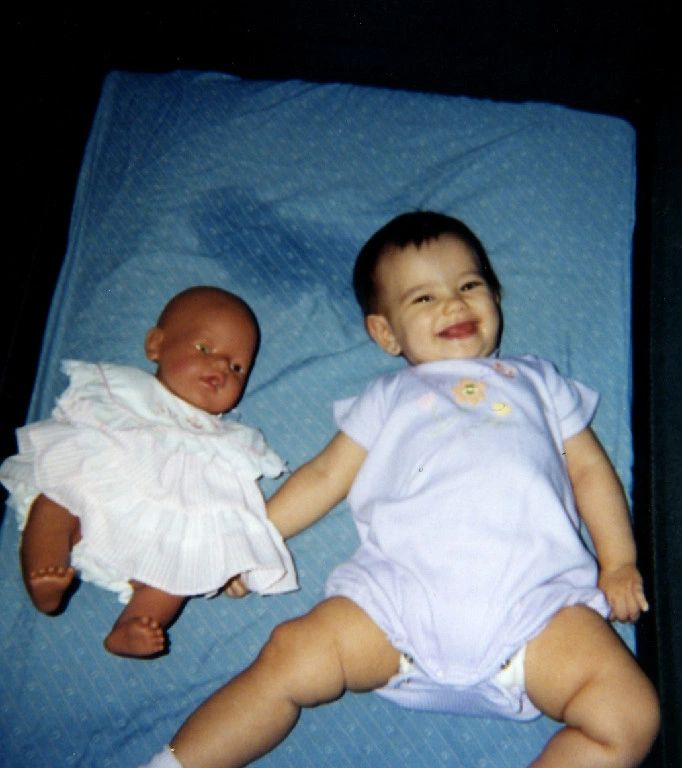Tay-Sachs Diagnosis I
Tay-Sachs Diagnosis - Why It's Not Just a Simple Blood Test - Part 1 of 2
*Rachaeli's Friends
Sign up for Updates
*Bar Mitzvah Video Invite
What is Project Shui?
Thank You From Shui
Internet Ads&Marketing
What is Shavuot?
Shavuot & Shui's Sister
What is Tay-Sachs?
Tay-Sachs Diagnosis:
Part I
Part II
Genetics Made Fun
*Lysosomes The Movie
*Genetics 101 Video
Narrated by Alec Baldwin
Genetics 101 Article
*Inspirational Videos
*Beautiful Faces of Lysosomal
*Tay-Sachs Talk
*Connor Hopf Cure Tay-Sachs
*2010 Faces of Tay-Sachs
*My Soul Sister-Molly Grace
*Our Star Dakota
*Rachaeli's Song of Love
*Elise-A Child Living with Tay-Sachs
*Last Laugh
*Meet Gavin
Tay-Sachs in the Media
*Glee Sectionals
*Grey's Anatomy Sweet Surrender
*Law & Order SVU MERCY
*21 Below Documentary
Legal & Financial Issues
What is Wrongful Life?
Right to Live in the United Kingdom
How to Pay Medical Bills?
Social Security Disability
CHIPRA-Insurance for Kids
Medicaid Waiver Programs
Katie Beckett Medicaid
Who is Katie Beckett?
Why We Need Katie Beckett Waiver?
Eligibility for Katie Beckett
Katie Beckett in Georgia
Katie Beckett's Going Home
(from People Magazine 1981)
Treatment or Cure
Canavan Pioneers
*Gene Therapy
Jacob Sheep Sensation
Article in Forward-Jacob Sheep
*Stem Cell Transplants
Enzyme Replacement
Substrate Inhibitors
Should I Try Zavesca?
Letter for Insurance
Approval for Zavesca
Chaperone Therapy
In-Home Medical Care
Home Health Care
Respiratory/Secretions
Coping Strategies
Coping with Humor w/ Shui's Dad
Rachaeli's Story
Shocked by Tay-Sachs Article
The Project Shui Family
Mommy's Online Journal
Abba's Online Journal
Shui's Fun Pages
Guestbook
Sitemap
Is diagnosing Tay-Sachs disease really a simple blood test? The answer is yes if you know what you're looking for. Most families with a Tay-Sachs child in 2010 would say it was not just a simple blood test. Why? There are a number of reasons. The first two will be discussed in this article.
First, Tay-Sachs is extremely rare. If a child
presents to his or her pediatrician with  low muscle tone, for example,
the pediatrician is not running to do a Tay-Sachs test. There are so
many more common causes of low tone. Rare genetic diseases such as
Tay-Sachs are close to the bottom of the list, particularly if one is
not of Ashkenazi Jewish decent. As the pediatrician works his or her way
down the list of possibilities, specialty consultations are being
arranged, such as Neurology and Genetics. Then there is the wait for
those appointments. It could be 9 months before an assessment is
scheduled in either of these two sub-specialties.
low muscle tone, for example,
the pediatrician is not running to do a Tay-Sachs test. There are so
many more common causes of low tone. Rare genetic diseases such as
Tay-Sachs are close to the bottom of the list, particularly if one is
not of Ashkenazi Jewish decent. As the pediatrician works his or her way
down the list of possibilities, specialty consultations are being
arranged, such as Neurology and Genetics. Then there is the wait for
those appointments. It could be 9 months before an assessment is
scheduled in either of these two sub-specialties.
Second, Tay-Sachs is no longer only a Jewish Genetic Disease. This is due to highly effective genetic screening of the Ashkenazi Jewish population since the early 1970's. Tay-Sachs screening did not eradicate Tay-Sachs in Jews. Screening did, however, cut down the incidence of Tay-Sachs in Jews by a whopping 90 percent, from 60 new cases per year in the United States and Canada before 1970, to 3 to 5 new cases per year in the early 1990's.
Can Ashkenazi Jews still get Tay-Sachs? Absolutely. One reason for this is that not all Jewish people get screened or know to get screened. Second, a small number of Jews that are screened receive false negative results due to a lab error. A third reason is that many people do not know that they have an ancestor of Ashkenazi Jewish decent and so screening never comes up. The disease is passed on by a recessive gene, which means the gene for Tay-Sachs can be passed from generation to generation, never manifesting any symptoms.
As Tay-Sachs screening reduced the incidence of new cases in the Jewish population by 90%, other high-risk ethnic groups have emerged and their unique genetic mutations identified. These groups include Irish Americans, in which one in 50 are carriers of the Tay-Sachs gene, and French Canadians and Louisiana Cajuns, who have the same carrier rate as Ashkenazi Jews, which is one in 27. The carrier rate for the Tay-Sachs gene in the general population is one in 250. Medical texts still emphasize the Ashkenazi Jewish predominance, and therein lay a major problem in preventative or prenatal screening of the other high-risk ethnic groups.
A third reason why a Tay-Sachs diagnosis is not
just a simple blood test involves the hidden symptoms which often go
unreported until it is too late.



